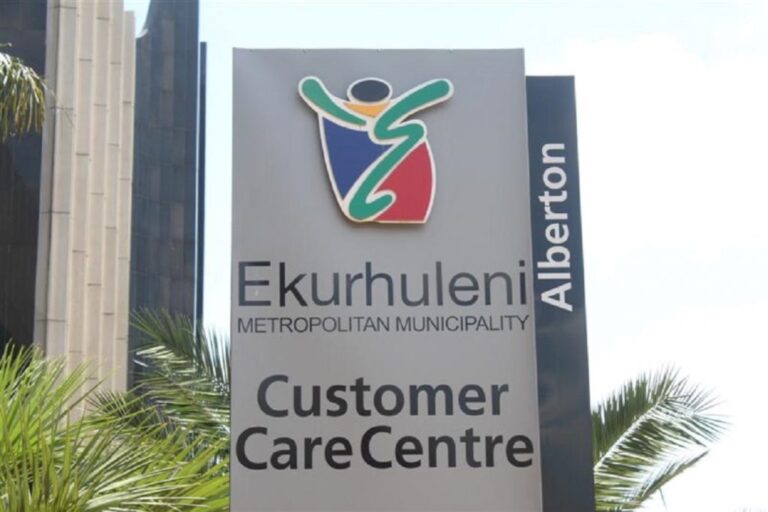Moody’s Investors Service on Wednesday downgraded the City of Ekurhuleni’s credit ratings further into ‘junk’ status in the wake of the metro’s worsening financial position.
The ratings agency lowered Ekurhuleni’s long-term issuer (domestic) and senior unsecured ratings to Caa2 from Caa1 and its baseline credit assessment (BCA) to caa2 from caa1. Caa2 is eight notches into non-investment grade or junk status in terms of Moody’s ratings.
ADVERTISEMENT
CONTINUE READING BELOW
It also placed Ekurhuleni’s ratings and BCA on review for further downgrade, together with putting the City of Tshwane’s ratings on review for a downgrade. Tshwane currently has a Caa2 long term issuer rating.
Read: Tshwane misses JSE deadline, placed on review for downgrade by Moody’s
Moody’s has also downgraded Ekurhuleni’s National Scale issuer and debt ratings (NSR) to B3.za from B2.za and placed these on review for further downgrade.
The ratings update comes after the two metros neglected submitting their audited financial statements to the JSE.
Ekurhuleni, which is home to Africa’s busiest aviation hub OR Tambo International Airport, is SA’s fourth biggest municipality, while Tshwane is the country’s administrative capital and fifth biggest city.
Read: Multi-billion-rand Cape Town and OR Tambo airport expansions to go ahead
Ekurhuleni and the office of the Auditor General (AG) are currently in a dispute over the delay of the metro’s 2023 audit report.
Tshwane and Ekurhuleni are among more than half of South Africa’s municipalities which are in dire straits financially.
Severe cash flow constraints
AG Tsakani Maluleke warned last year in a report that many municipalities are nearing collapse with severe cash flow constraints.
Moody’s said in its statement that its decision to downgrade Ekurhuleni, and to put Tshwane and Ekurhuleni on review for a further downgrade, reflects these metros’ increased risk of accelerated debt and the potential danger that they could default on their notes listed on the JSE.
ADVERTISEMENT
CONTINUE READING BELOW
A Caa2 credit rating means an entity’s debt is highly speculative and that it is nearing – or already in – default.
“Moody’s understands that the failure to submit the financial statements to the JSE by the deadline of the 29th of February leads to a phase where the two cities will start a dialogue with the JSE to present their line of defense and indicate the date for the submission of their audited accounts,” the agency noted.
Meanwhile, the Ekurhuleni metro said it will be able to submit its financial statements by 31 March 2024. Tshwane made the same commitment in a statement.
Moody’s emphasises that the outcome of a dialogue between the JSE and the two metros is uncertain. “The de-listing and suspension of bonds could put the cities in a weak liquidity position, which could increase their risks of a default,” it warned.
Listen: Only 14.5% of municipalities obtained a clean audit – AG report
Ekurhuleni has experienced weakening governance and management practices, and its cash and cash equivalents-to-operating revenue was very low at just 2.7% in 2022 – a situation that is unlikely to improve in the 2023 fiscal year, said Moody’s.
The city’s gross operating balance remained low in 2023 due to an increase in the buying of bulk electricity and water, as well as difficulties to recover revenue from consumers amid load shedding and continued water shortages.
Moody’s said it is unlikely that Ekurhuleni will receive any significant financial support from the national government in the event of a liquidity crisis, which is also a factor that contributed to its ratings downgrade.

